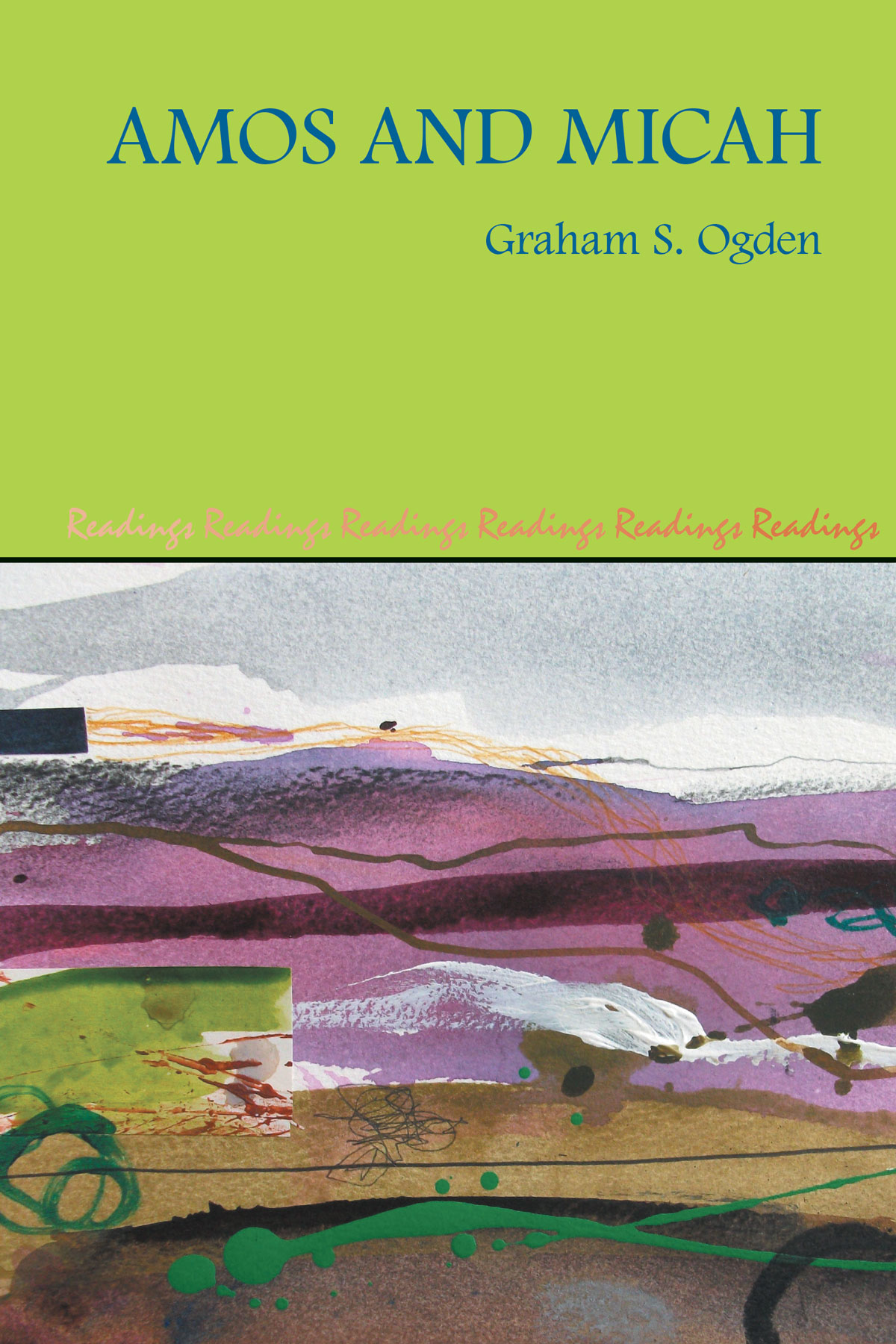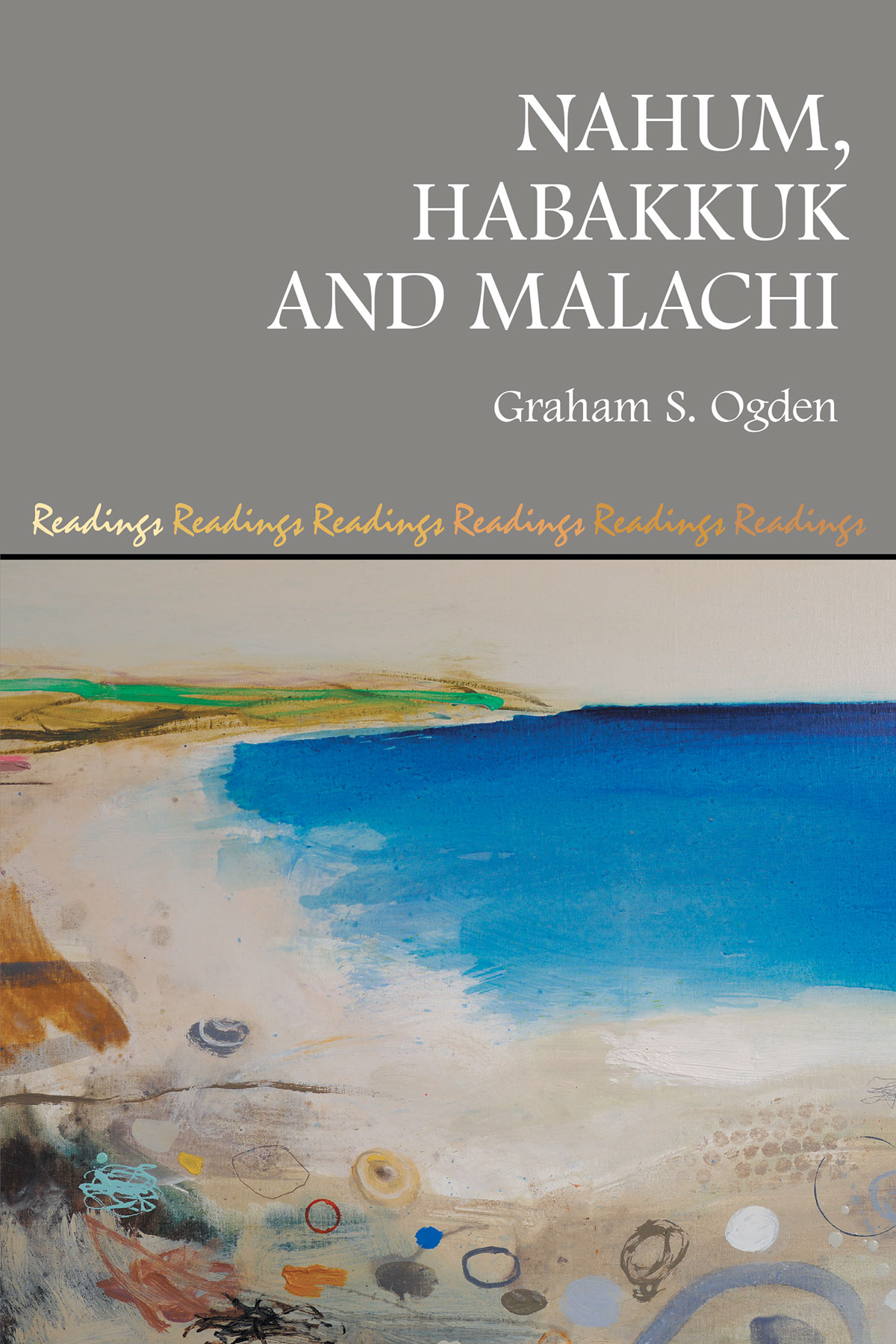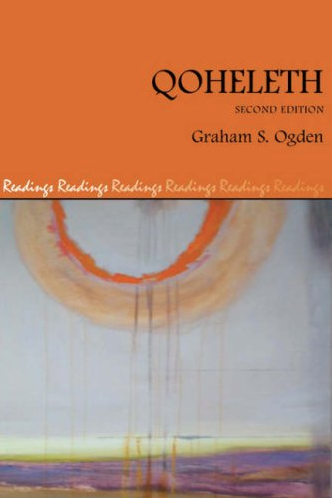Amos and Micah
Published: May 2024
Price range: £20.00 through £60.00
Amos denied being a prophet, for he was a Visionary, one who ‘saw’ and assessed what was happening around him. Micah condemned all prophets as corrupt liars, ensuring that he should not be mistaken for one. He too was a Visionary who ‘saw’ the state of affairs in that same eighth century BCE Israelite society. The fact that neither of these men is identified in the text as a prophet is vitally important, for it indicates how one must read their edited works. The traditional view that these men spoke what Yahweh their God revealed to them is not applicable; both spoke about what they themselves ‘saw’ in the social and religious context within Israel at the time.
Both books, Amos and Micah, are reports of their insights now set within new frames. Amos is structured about discrete blocks of material with shared forms, such as the opening series of numerical x, x+1 forms (1.3—2.16), the calls to ‘Hear this word…’ (3.1—5.17), ‘Woe…’ forms (5.18—6.7) and his five visions (7.1—9.6). It is a planned re-arrangement of Amos’ words (1.1) as recalled. Micah’s editor similarly has selected a number of discrete and generalized speeches attributed to Micah, setting them within a chiastic structure with 4.11-13 as the central unit; it spells out his conviction that Yahweh is ‘master of the whole earth’. Indeed, Micah’s very name asks the question ‘Who is like Yah(weh)?’ and 4.11-13 is his response, closing in 7.18-20 with another rhetorical question ‘Who is a God like you?’ Micah sees his God as incomparable!
The commentary depends on the text’s literary and rhetorical evidence to give expression to Amos’ and Micah’s deep personal concerns within the historical and cultural setting of their time.
Amos and Micah
Price range: £20.00 through £60.00
Amos denied being a prophet, for he was a Visionary, one who ‘saw’ and assessed what was happening around him. Micah condemned all prophets as corrupt liars, ensuring that he should not be mistaken for one. He too was a Visionary who ‘saw’ the state of affairs in that same eighth century BCE Israelite society. The fact that neither of these men is identified in the text as a prophet is vitally important, for it indicates how one must read their edited works. The traditional view that these men spoke what Yahweh their God revealed to them is not applicable; both spoke about what they themselves ‘saw’ in the social and religious context within Israel at the time.
Both books, Amos and Micah, are reports of their insights now set within new frames. Amos is structured about discrete blocks of material with shared forms, such as the opening series of numerical x, x+1 forms (1.3—2.16), the calls to ‘Hear this word…’ (3.1—5.17), ‘Woe…’ forms (5.18—6.7) and his five visions (7.1—9.6). It is a planned re-arrangement of Amos’ words (1.1) as recalled. Micah’s editor similarly has selected a number of discrete and generalized speeches attributed to Micah, setting them within a chiastic structure with 4.11-13 as the central unit; it spells out his conviction that Yahweh is ‘master of the whole earth’. Indeed, Micah’s very name asks the question ‘Who is like Yah(weh)?’ and 4.11-13 is his response, closing in 7.18-20 with another rhetorical question ‘Who is a God like you?’ Micah sees his God as incomparable!
The commentary depends on the text’s literary and rhetorical evidence to give expression to Amos’ and Micah’s deep personal concerns within the historical and cultural setting of their time.
Nahum, Habakkuk and Malachi
Published: May 2023
Price range: £20.00 through £60.00
Nahum, ironically named ‘the compassionate one’, Habakkuk who laments God’s failure to answer his questions about justice and violence, and the eponymous Malachi are the three characters whose record is the focus of this reading. The commentary offers a close reading of the Hebrew text of each book along with its rhetorical features. The three books are read from within their several ancient contexts, literary, cultural and theological.
Only Habakkuk is specifically identified as a ‘prophet’, while Nahum’s and Malachi’s editors studiously avoid the term, raising a question about why these three books have been honoured with a place in the Scroll of the Twelve rather than somewhere else. Each book is titled a Massa’ by its editor, identifying them as examples of an emerging literary trope that combines both prophetic and wisdom elements in a didactic purpose.
Nahum is identified not as a prophet but as a Visionary. He saw the dire situation of his people and expressed his longing for God’s intervention. The God of whom he spoke was one ‘jealous, and avenging’, one he longed would act against the overwhelming power of the Assyrians that threatened his people.
Habakkuk, though identified as a prophet, shows no evidence of any prophetic activity. He laments the failure of justice and consequent violence as witnessed (1.2-4). The Lament-form used has been torn in two by the editor for the purpose of inserting a Dialogue with God (1.5-2.20), a Dialogue that fails completely to answer Habakkuk’s ‘Why?’ questions in 1.1-2. The concluding portion of the Lament (3.2-19) witnesses to Habakkuk’s continued trust in his God despite the divine failure to resolve his questions.
The eponymous ‘Malachi’ is identified as a Messenger, never as a prophet, as the book reports six different and independent messages covering issues that arose during an extended period in early postexilic Judaean life. Using a frame of six Question-Response forms that feature rhetorical questions, his audiences deny the validity of each negative charge against them.
Graham Ogden has been a United Bible Societies’ Translation Consultant. He lives in Ballarat, Victoria, Australia.
Nahum, Habakkuk and Malachi
Price range: £20.00 through £60.00
Nahum, ironically named ‘the compassionate one’, Habakkuk who laments God’s failure to answer his questions about justice and violence, and the eponymous Malachi are the three characters whose record is the focus of this reading. The commentary offers a close reading of the Hebrew text of each book along with its rhetorical features. The three books are read from within their several ancient contexts, literary, cultural and theological.
Only Habakkuk is specifically identified as a ‘prophet’, while Nahum’s and Malachi’s editors studiously avoid the term, raising a question about why these three books have been honoured with a place in the Scroll of the Twelve rather than somewhere else. Each book is titled a Massa’ by its editor, identifying them as examples of an emerging literary trope that combines both prophetic and wisdom elements in a didactic purpose.
Nahum is identified not as a prophet but as a Visionary. He saw the dire situation of his people and expressed his longing for God’s intervention. The God of whom he spoke was one ‘jealous, and avenging’, one he longed would act against the overwhelming power of the Assyrians that threatened his people.
Habakkuk, though identified as a prophet, shows no evidence of any prophetic activity. He laments the failure of justice and consequent violence as witnessed (1.2-4). The Lament-form used has been torn in two by the editor for the purpose of inserting a Dialogue with God (1.5-2.20), a Dialogue that fails completely to answer Habakkuk’s ‘Why?’ questions in 1.1-2. The concluding portion of the Lament (3.2-19) witnesses to Habakkuk’s continued trust in his God despite the divine failure to resolve his questions.
The eponymous ‘Malachi’ is identified as a Messenger, never as a prophet, as the book reports six different and independent messages covering issues that arose during an extended period in early postexilic Judaean life. Using a frame of six Question-Response forms that feature rhetorical questions, his audiences deny the validity of each negative charge against them.
Graham Ogden has been a United Bible Societies’ Translation Consultant. He lives in Ballarat, Victoria, Australia.
Obadiah and Haggai
Published: May 2022
Price range: £15.00 through £35.00
This new commentary questions whether Obadiah’s ‘vision’ is a prophetic book in the traditional sense, or a communal appeal to God to deal with Edom, similar to the cry in Psalm 137.7-9. Ogden suggests an editorial structure for the document built around the numerically central v. 11 that provides a focus for the appeal, one which seeks an immediate response from God. The conclusion is that this is fundamentally an appeal for God to act, rather than a promise of a future possibility.
The Haggai commentary argues that the document is a collection of loosely related stories about the prophet Haggai’s encounters with Zerubbabel and
Joshua, Judaean leaders who did not share the prophet’s sense of urgency about providing God with a refurbished house. Haggai is seen as a somewhat distant figure whose narrow worldview and theology saw him in conflict with the openness of the two community leaders. Haggai’s explanation for the crisis confronting the community showed little concern for its impact on the community, his calls to ‘Consider…’ pressuring them to conform to his plan for God’s ‘house’.
Both commentaries take the view that from the time of the destruction of Jerusalem and its temple in 587 bce, and for many many years thereafter, there was a wide range of oral material in circulation that gave expression to Judaean pain and anger at what had happened, and to the deceitfulness of its ‘brother’ Edom’s participation in the demise of the southern kingdom. The editors of both Obadiah and Haggai drew upon that range of oral stories that existed in multiple forms to make their individual reports. Both documents have deep roots in Deuteronomic and nationalistic ideology.
Ogden provides a reading that prioritizes the rhetorical elements in the Hebrew text while noting its historical, social and theological settings.
Obadiah and Haggai
Price range: £15.00 through £35.00
This new commentary questions whether Obadiah’s ‘vision’ is a prophetic book in the traditional sense, or a communal appeal to God to deal with Edom, similar to the cry in Psalm 137.7-9. Ogden suggests an editorial structure for the document built around the numerically central v. 11 that provides a focus for the appeal, one which seeks an immediate response from God. The conclusion is that this is fundamentally an appeal for God to act, rather than a promise of a future possibility.
The Haggai commentary argues that the document is a collection of loosely related stories about the prophet Haggai’s encounters with Zerubbabel and
Joshua, Judaean leaders who did not share the prophet’s sense of urgency about providing God with a refurbished house. Haggai is seen as a somewhat distant figure whose narrow worldview and theology saw him in conflict with the openness of the two community leaders. Haggai’s explanation for the crisis confronting the community showed little concern for its impact on the community, his calls to ‘Consider…’ pressuring them to conform to his plan for God’s ‘house’.
Both commentaries take the view that from the time of the destruction of Jerusalem and its temple in 587 bce, and for many many years thereafter, there was a wide range of oral material in circulation that gave expression to Judaean pain and anger at what had happened, and to the deceitfulness of its ‘brother’ Edom’s participation in the demise of the southern kingdom. The editors of both Obadiah and Haggai drew upon that range of oral stories that existed in multiple forms to make their individual reports. Both documents have deep roots in Deuteronomic and nationalistic ideology.
Ogden provides a reading that prioritizes the rhetorical elements in the Hebrew text while noting its historical, social and theological settings.
Qoheleth, Second Edition
Published: May 2007
Price range: £15.00 through £35.00
Qoheleth's driving question, according to Ogden, is posed in the opening lines of his book. It is the question, What lasting advantage (yithron) results from the multitude of activities in which humans find themselves engaged? In a word, the answer is, None; but the supplementary question remains, How shall we then live?
Qoheleth is no pessimist. Even though he believes that nothing survives from the activities of life, he encourages his readers to live life to the full, to 'eat, drink and enjoy what God provides'. Wisdom is one of those enjoyable benefits of life, but even it has its limitations: it can never produce an understanding of the totality.
What of the classic term hebel (traditionally translated 'vanity') in Qoheleth's thought? It is much better understood, argues Ogden, as 'enigma' or 'mystery', and the mystery it points to is the mystery of the yithron: how is joy the proper goal of human life when we know it must inevitably come to an end without leaving any surplus?
Qoheleth, Second Edition
Price range: £15.00 through £35.00
Qoheleth's driving question, according to Ogden, is posed in the opening lines of his book. It is the question, What lasting advantage (yithron) results from the multitude of activities in which humans find themselves engaged? In a word, the answer is, None; but the supplementary question remains, How shall we then live?
Qoheleth is no pessimist. Even though he believes that nothing survives from the activities of life, he encourages his readers to live life to the full, to 'eat, drink and enjoy what God provides'. Wisdom is one of those enjoyable benefits of life, but even it has its limitations: it can never produce an understanding of the totality.
What of the classic term hebel (traditionally translated 'vanity') in Qoheleth's thought? It is much better understood, argues Ogden, as 'enigma' or 'mystery', and the mystery it points to is the mystery of the yithron: how is joy the proper goal of human life when we know it must inevitably come to an end without leaving any surplus?






Proverbs 1-9
Proverbs 1-9